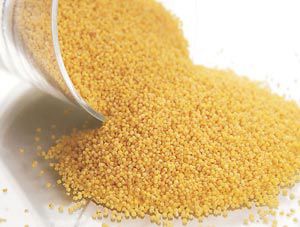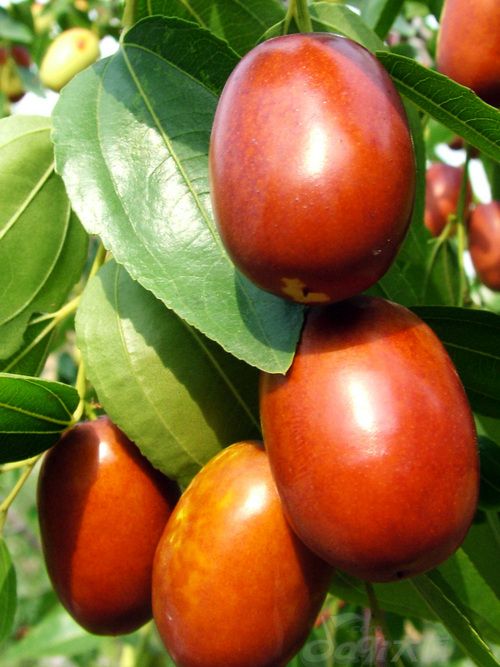In the cold and dry winter, the delicate baby needs more nutrition guarantees to improve the body's immunity and fight against various diseases. So, what foods can satisfy children's health needs?
1, eat more vegetables, beware of baby cold
In addition to doing the baby's daily care, if during this period, the mother can understand the basic principles of winter diet, you can start from the diet to enhance your baby's body resistance to cold and disease resistance.
Regardless of the season, baby's three meals a day must pay attention to the diversification of food, food group, vegetable group, fruit group, animal food group, dairy product and bean product group. These five food groups must be less. In winter, the baby must especially eat more vegetables and beware of colds.
Some babies "hate" eating vegetables or eating very few vegetables. At this time the mother does not hurry to force the baby to eat, it will make the baby more sick of vegetables. It is better to change the method, from the expansion of vegetable varieties, such as: from leafy vegetables (green vegetables, spinach, basil, beans, etc.), cabbage family vegetables (cabbage, cabbage, cauliflower, etc.), root vegetables (potatoes, radishes, winter bamboo shoots) , carrots, etc.), mushrooms, and other vegetables to pick the baby's favorite vegetables. However, this process may be a bit long. In order to allow the baby to accept the vegetable diet, the mother still needs patience, patience, and patience.
2, warm food, protect the baby's stomach
In the winter, when mothers pick their baby's food, they should focus on warm foods. For example, leeks, leeks, stews or soups. Not to give your baby more cold food, because the cold food is not easy to digest, it is easy to hurt the baby's spleen and stomach, this point for those children with spleen and stomach should pay special attention.
In the cold winter, babies can eat apples, pears, kiwi, bananas, grapefruit, oranges, and other fruits, as well as pork, beef, lamb, chicken, fish, shrimp and other animal foods. In addition, soy products are a good source of winter dishes, such as tofu and braised pork cook, lactone tofu for meat or fish, cabbage pork tofu, etc., are suitable for baby food in winter nutrition.
Experts remind mothers that the heat is quickly dissipated in winter and the temperature of the dishes can not be reduced too quickly by using the method of thickening. For example, dishes can be cooked. In addition, the difference with the lightness of summer dishes is that winter dishes can be made thicker.
3, porridge water, to ensure the body needs
Although perspiration decreases in winter, the cells of the brain and various organs of the body still need sufficient water to ensure normal metabolism. Therefore, the baby should be given enough water to ensure the body's needs. For older children, parents should teach them to take the initiative to drink water instead of waiting for thirst to drink. Because, when it is thirsty, its body is already in a state of water shortage.
In addition, experts believe that more sugary drinks, or drink less is better, the best "beverage" is still boiled water, allowing your baby to drink more. Infants and young children need to drink 100 to 150 milliliters of water per kilogram of body weight per day, while children of 1 to 7 years of age need about 90 to 110 milliliters per kilogram of body weight per day.
In addition to drinking more water for your baby, you should often give your baby porridge. Drinking hot porridge in winter is especially good for your baby to absorb calories and nutrition. Porridge is particularly suitable for infants and young children, the baby's gastrointestinal function is weak, and because the cooking time is long, the nutrients in the porridge can be analyzed, so the porridge is not only nutritious, and easy to digest and absorb.
Why do babies need stomach in season?
The baby's metabolism is faster than that of adults, and its growth and development are rapid. It requires a sufficient energy supply. The cold season can affect the endocrine system of humans, such as the increase of thyroxine and epinephrine secretion, thereby accelerating the decomposition of protein, fat and sugar, in order to increase the body's ability to withstand cold, which will cause the body to lose too much heat. Therefore, especially in the winter season, babies need to have their stomachs and stomachs to protect their stomachs. This is the key to preventing stomach diseases in infants and young children.
There are many reasons why infants and young children have stomach problems, such as unreasonable diet, excessive diet, unsanitary diet, and Helicobacter pylori infection. In addition, the baby may not eat too much staple food, but eat too much snacks, eat too much food or shoot into too much greasy food, which is the main reason for the occurrence of stomach problems. Therefore, young mothers and fathers and mothers must let their babies develop good living habits. They have the awareness of maintaining their stomachs since childhood.
How does the baby's five stomach foods show how to judge whether the baby has stomach problems?1. Your baby is constantly turning during sleep, sometimes biting his teeth. The so-called Chinese medicine practitioners believe that "the food is not good, sleep disturbed."
2. The original baby's appetite is still very good, but in recent days it has been found that the baby's appetite decreased significantly, and often there are symptoms such as nausea and vomiting.
3. Babies who have learned to talk often say they are uncomfortable, swelling and painful. Dry or sour stools, sour foul, fart smelly fleas, snoring, suffocation, food accumulation will lead to malnutrition, affecting growth and development.
4. Mom and Dad found that both sides of the baby's nose were blue, white and greasy, and they smelled of acid in the exhaled breath.
5. Symptoms of fever in the hands and feet, yellowing of the face, and apathy.

Measures to help your baby stomach in the winter
Measure 1: The baby is an individual who needs growth and development, and needs sufficient protein to supplement it. The supply of the baby accounts for about 30% of the total calories. Protein-rich foods such as eggs, milk, and soy products are rich in amino acids necessary for human growth and have high nutritional value, which can enhance children's resistance to disease and cold.
Measure 2: People are afraid of the lack of cold and dietary inorganic salt, so in the winter diet should take more root vegetables, such as carrots, yams, white radishes, etc., because the root vegetables contain more inorganic salts. In addition, the winter baby is susceptible to cold, especially the stomach susceptible to cold, to add "warm stomach" foods such as jujube, yams, rice, millet, glutinous rice, sorghum, glutinous rice, kidney beans, lentils, soybeans, cabbage, spinach, carrots , Shantou, sweet potatoes, potatoes, pumpkin, black fungus, mushrooms, longan and so on. In addition, when cooking, put more warm food such as scallions, ginger, garlic, leeks, onions, etc., can also play the role of chilly Yin and cold.
Measure 3: Calcium can directly affect the expansion and excitability of the human heart muscle and blood vessels. Calcium supplementation can improve the body's ability to keep warm.
Measure 4: Winter foods should be dominated by hot foods, preferably leeks, leeks, stews or soups. Do not give your baby more cold food. Cold food is not easy to digest, it is easy to hurt your baby's spleen and stomach, especially for babies with spleen and stomach deficiency.
Measure 5: There are many babies who do not like to eat vegetables. In addition, winter is the off-season of vegetables, and there are fewer varieties. Children who eat less vegetables tend to lack vitamins. If the lack of vitamin B, C is susceptible to angular cheilitis, gingivitis, bleeding gums, constipation, indigestion, etc., the prevention approach is to eat more green leafy vegetables, kiwi, potatoes, sweet potatoes, tomatoes, corn and so on. In the winter, vitamins A and D are also easily lacking. Therefore, they are prone to repeated respiratory infections, digestive tract diseases, rickets, etc. They should eat more carrots, white radish, and milk.
Step 6: Develop good eating habits. Should not eat too full, overeating the baby, not only make the digestive capacity of the stomach unbearable, causing indigestion, and sometimes can also lead to acute gastric dilatation, gastric perforation and other serious diseases. Many babies like to eat while eating. In this way, a large amount of blood is needed for the brain during play, and the amount of blood for gastrointestinal digestion and absorption is relatively reduced, which affects digestion and absorption. In the long term, it is prone to chronic gastritis. Do not let the baby eat snacks, because it will undermine the normal law of gastric secretion of digestive enzymes, so that the stomach is often "playing unpreparedness", can not get a normal and reasonable rest, it is easy to "overwork into a disease."
Measure 7: Obviously different from the lightness of summer dishes, winter dishes should be thick. The baby's food should be properly matched, often changing varieties, so as to meet the requirements of a balanced diet to meet the baby's growth and development needs.

Tenofovir Alafenamide Fumarate Intermediate
Tenofovir Alafenamide Fumarate Intermediate,Tenofovir Alafenamide Fumarate,Tenofovir Related Compound 2,Tenofovir Alafenamide Fumarate Api
Shandong Bolode Bio-technology Co., Ltd. , https://www.bldpharma.com